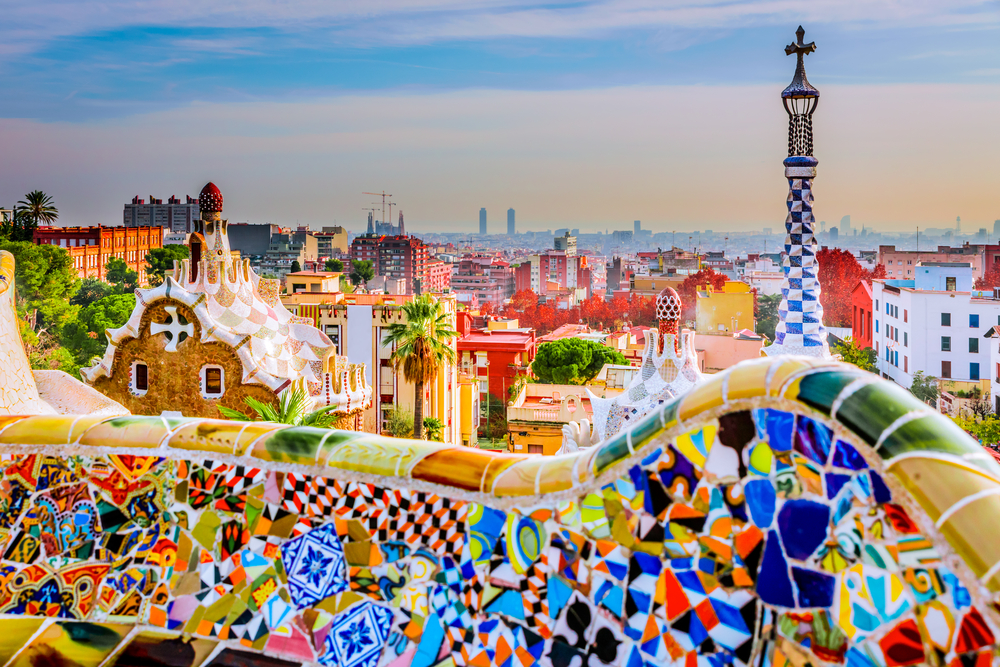Are you considering making the leap across the Channel to embrace the Spanish sunshine and culture? Relocating to Spain is a dream for many Britons seeking a change of pace and scenery. However, before you embark on this exciting adventure, it’s essential to gather firsthand insights and advice to ensure a smooth transition.
James Smith from Learn Spanish With James details his key pieces of advice that every potential expat should be aware of before making the big move.
Become An Expert On The Legal Requirements
One of the first steps in your relocation journey is understanding the legal and visa requirements for living in Spain, especially post-Brexit, as British citizens now face different regulations when moving to EU countries. James shares, ‘Navigating the paperwork can be daunting, but it’s essential to familiarize yourself with the visa options and residency requirements.’
Depending on your situation, you may need to apply for a visa or residency permit to live and work in Spain legally. For example, those planning to stay for more than 90 days within a 180-day period will need to apply for a long-stay visa or residency permit. Researching and preparing the necessary documentation in advance can streamline the application process and prevent potential delays.
Will You Be Able To Afford The Lifestyle?
While the Spanish lifestyle may seem idyllic, it’s essential to understand that expenses can vary significantly depending on your location and lifestyle preferences. James says, ‘Researching the cost of living in different regions of Spain will help you make informed decisions about where to settle. While some areas may offer lower property prices and living costs, others may be more expensive but offer additional amenities and services.’

Creating a budget and factoring in expenses such as rent, utilities, groceries, and transportation will help you decide whether you’ll be able to afford to live in Spain before you move. Remember to consider other factors such as healthcare costs and taxes when estimating your overall expenses.
Be Sensitive To Regional Dynamics
Moving to Catalonia could cause you potential future problems as it seeks independence from Spain, so consider this when choosing a location to settle. Understanding the political landscape and regional dynamics can help expats make informed decisions about their relocation. Other regions, such as the Basque Country and Galicia, also have distinct cultural identities and political aspirations that could impact daily life and integration.
It’s Not Always Sunny!
James says, ‘Not all parts of Spain are equally sunny, so it’s crucial to research the weather in each region based on your preferences and needs.’ Coastal areas, such as Andalusia and the Balearic Islands, tend to have milder winters and hotter summers, while inland regions, like Castilla-La Mancha and Aragon, may experience more extreme temperatures. Additionally, mountainous areas, such as the Pyrenees, have distinct microclimates, so research carefully and consider climate variability when choosing your destination.
Be Prepared To Eat Late

Spain’s meal times differ significantly from those in the UK/US. Lunch is typically the largest meal of the day and is eaten between two and four in the afternoon. Dinner is served later, usually around nine or ten at night. This cultural aspect may require adjustment for newcomers, but it provides an opportunity to enjoy leisurely meals and socialize with friends and family.
Make Sure You’ll Be Able To Drive
Ensure you understand what you need to legally drive in Spain, including licenses and insurance requirements. British citizens can drive in Spain with their UK driving license for short visits, but those planning to reside in Spain long-term will need to exchange their license for a Spanish one. Familiarize yourself with local traffic laws and road signs to navigate the roads safely. Additionally, consider the option of using public transportation, such as trains and buses, which are efficient and widely available in many parts of Spain.
Above All, Embrace Your New Culture
Spain boasts a rich and diverse culture, from flamenco dancing to siesta traditions. Embracing these cultural nuances is key to fully integrating into Spanish society. James advises fellow expats: ‘Take the time to learn the language and immerse yourself in the local culture. Building relationships with your Spanish neighbors and colleagues can enhance your experience and help you feel more at home.’
Learning Spanish not only facilitates daily interactions but also demonstrates respect for local customs and fosters meaningful connections within the community. Additionally, understanding social etiquette, such as meal times and greetings, can help newcomers navigate social situations with ease.
Overcoming Potential Challenges
Relocating to a new country comes with its share of challenges, from language barriers to bureaucratic hurdles. James reflects on his journey: ‘Adjusting to life in Spain has had its ups and downs, but staying flexible and open-minded has been key. From navigating healthcare systems to adapting to cultural differences, it’s essential to approach challenges with patience and resilience.
‘Additionally, getting a job or starting a business in Spain will require navigating complex regulations and procedures. I can say from experience that expats should also be prepared for potential homesickness and the emotional challenges of adjusting to a new environment. Seeking support from expat communities and researching local resources will provide you with valuable guidance and assistance throughout your relocation process.
‘Moving to Spain may have its complexities, but the rewards of experiencing life in this beautiful country make it all worthwhile.’





